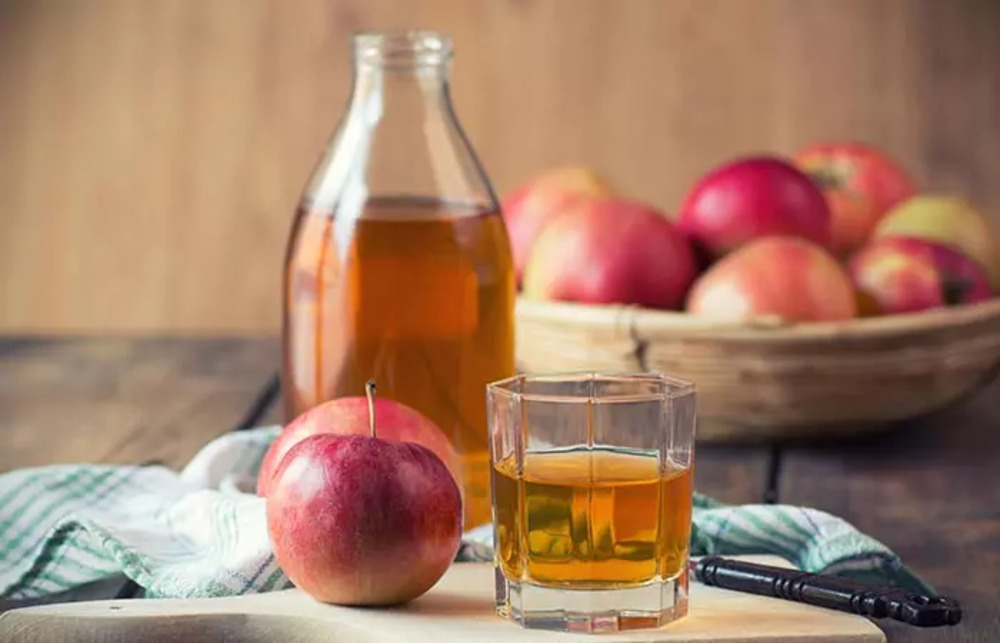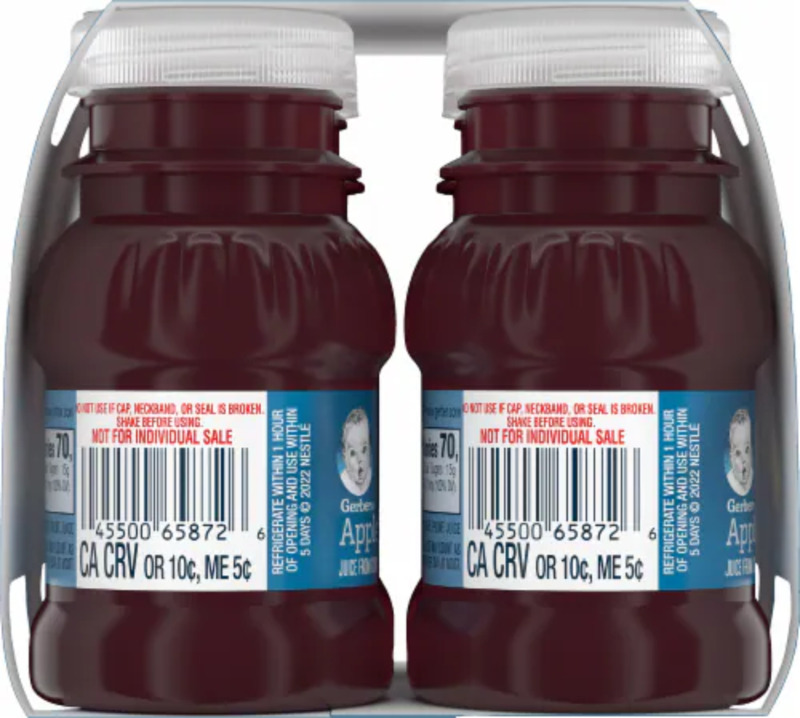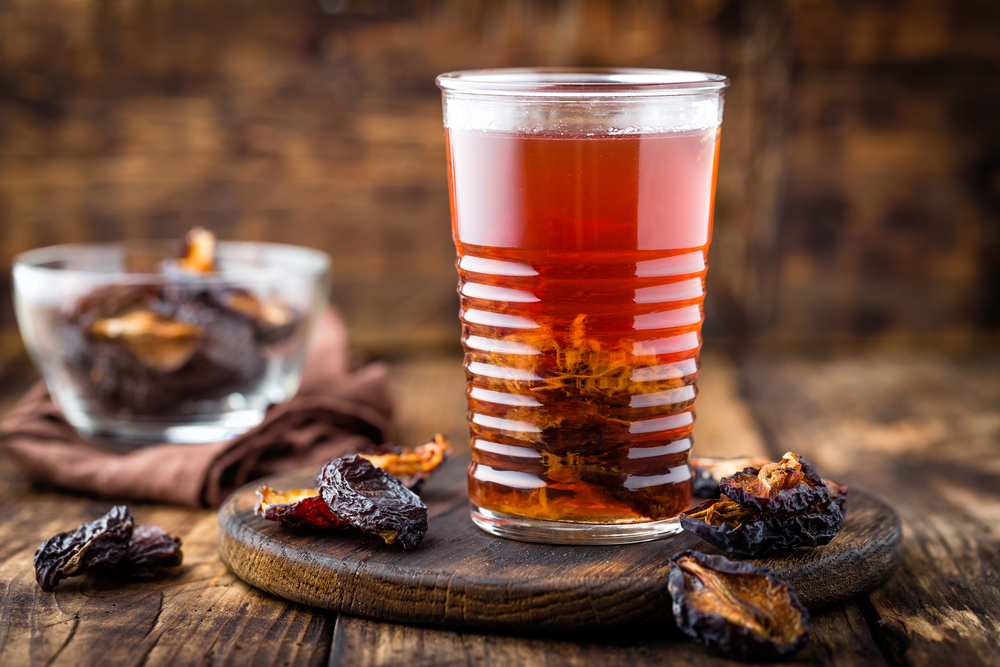Introducing Prune Juice for Babies: Benefits & Precautions
Are you a parent concerned about your baby or toddler’s constipation struggles? Have you opted for prune juice for babies, or are you looking to opt for prune juice as a solution? When it comes to easing constipation in infants and young children, prune juice emerges as a safe and effective choice, offering a gentle way to promote regular bowel movements without harsh chemicals or medications.
In this detailed guide, we will explore prune juice’s wonders as a natural treatment for constipation in babies and toddlers. From understanding the correct dosage to incorporating it into your child’s diet, we’ll walk you through everything you need to know to ensure your little one finds comfort and relief.
By unlocking the potential of prune juice for babies, you can help your child steer clear of constipation woes and maintain a healthy digestive system effortlessly.
Join us on this informative journey as we explore the benefits of using prune juice, unveil dosage recommendations, and share tips to prevent constipation issues in young children. Trust in the power of prune juice as a gentle yet effective remedy for your precious little one’s digestive health needs.
Treating Your Baby or Toddler’s Constipation with Prune Juice

When it comes to alleviating constipation in babies and toddlers, prune juice proves to be a reliable and natural treatment option. Prune juice is derived from dried plums, which are rich in fiber and sorbitol, helping to soften stools and stimulate bowel movements.
Using prune juice as a remedy for constipation offers several benefits for young children. It is safe, effective, and gentle on their delicate digestive systems. However, it is essential to follow proper dosage guidelines to avoid any adverse effects.
To administer prune juice to your baby or toddler, start with a small amount, typically one ounce, and gradually increase the quantity if needed. It is crucial to consult your child’s pediatrician or a child health nurse, especially if your child has any underlying health conditions.
Remember, prune juice is not a substitute for a healthy diet and good bowel habits. It should be used as a home treatment option under expert medical advice. By combining prune juice with a fiber-rich diet, adequate hydration, and regular toilet habits, you can effectively manage and prevent constipation in your little one.
In summary, prune juice offers a natural and effective solution for relieving constipation in babies and toddlers. When used appropriately and in conjunction with a balanced diet and lifestyle, prune juice can provide relief and promote regular bowel movements in young children.
Prune Juice for Baby Constipation

Constipation is a common issue among babies, and as parents, we want to find safe and effective solutions to provide relief. One natural remedy that has gained popularity is prune juice. Prune juice is not only gentle and easy to digest, but it also contains essential nutrients and fiber that can promote regular bowel movements in babies.
Causes of Constipation in Babies
Before diving into the benefits of prune juice, it’s important to understand the causes of constipation in babies. Several factors can contribute to constipation in infants, including:
1. Dietary factors
The transition from breast milk to formula or the introduction of solid foods can sometimes lead to constipation. A lack of dietary fiber or not enough fluids can also play a role in this issue.
2. Dehydration
Babies who do not consume enough fluids may experience constipation. It’s important to ensure your baby is adequately hydrated to support proper bowel movements.
3. Bowel habits
Some babies have a naturally slower bowel movement rhythm, which can result in infrequent or hard stools.
How Prune Juice Works
Prune juice acts as a mild laxative due to its high fiber content, particularly sorbitol. Sorbitol helps soften the stool and promotes bowel movements, relieving constipation. When introducing prune juice to your baby’s diet, it’s crucial to start slowly and gradually increase the amount to avoid any potential digestive discomfort.
4 Tips for Introducing Prune Juice to Your Baby’s Diet

Here are some essential tips to keep in mind when introducing prune juice to your baby’s diet:
1. Consult your baby’s pediatrician
Before starting any home treatment, it’s important to consult your baby’s pediatrician or a child health nurse for guidance and advice tailored to your baby’s specific needs.
2. Start with a small amount
Begin by offering your baby a small amount of prune juice, such as half an ounce. Observe how their body responds before increasing the dosage.
3. Mix prune juice with water
Diluting prune juice with an equal amount of water can help prevent any potential digestive issues or discomfort.
4. Monitor your baby’s bowel movements
Keep track of any changes in your baby’s bowel movements. If constipation persists or worsens, consult a healthcare professional for further evaluation.
Remember, while prune juice can be an effective remedy for constipation in babies, it’s essential to ensure your baby is consuming a balanced and healthy diet that includes a variety of high-fiber foods. Prune juice should be used as part of a comprehensive approach to promote regular bowel movements and relieve constipation in infants.
Prune Juice for Newborns

When it comes to relieving constipation in newborns, it’s important to proceed with caution and seek guidance from your baby’s pediatrician or a healthcare professional. While prune juice can be effective in treating constipation in older children and adults, its use for newborns should be approached differently.
Dosage Considerations
- Dosage is a critical factor when considering prune juice for newborns.
- It is crucial to follow the guidance of a healthcare professional in determining the appropriate dosage for your baby.
- A small amount of prune juice may be recommended to stimulate bowel movements gently.
Potential Risks
- Given their delicate systems, newborns may have difficulty processing certain substances, including prune juice.
- It is crucial to be aware of potential risks.
- Some babies may experience an upset stomach, gas, or loose stools when introduced to prune juice.
- It is advisable to start with a tiny amount and then observe your baby’s reaction before proceeding further.
Expert Medical Advice
- Always consult with your baby’s healthcare professional, such as a pediatrician or a registered healthcare practitioner, for expert guidance on using prune juice for constipation in newborns.
- They can assess your baby’s individual situation, take into account any underlying health conditions, and provide recommendations tailored to your baby’s needs.
Remember, the primary goal is to ensure your baby’s comfort and well-being. Prune juice should only be introduced under the supervision and guidance of a medical professional to avoid any potential complications.
By working closely with your baby’s healthcare provider, you can make informed decisions regarding the use of prune juice as a potential remedy for constipation in newborns. Always prioritize your baby’s safety and well-being when exploring treatment options.
Prune Juice for Infants

When it comes to relieving constipation in infants, prune juice can be a safe and effective option. By following the proper dosage and guidelines, you can help your little one find relief and encourage regular bowel movements.
Here’s how you can use prune juice to treat constipation in infants:
Dosage and Frequency
- For infants between 4 and 8 months old, it is recommended to start with a small amount of prune juice, around 1 to 2 ounces, mixed with an equal amount of water.
- You can offer this diluted prune juice once a day and gradually increase the amount if needed.
- Always consult with your baby’s pediatrician or a child health nurse for specific dosage instructions.
Gradual Introduction
- When introducing prune juice to your infant’s diet, it’s important to do it gradually.
- Start by offering a small amount and observe how your baby responds.
- If there are no adverse reactions, you can continue increasing the dosage over time.
- Keep in mind that every baby is different, so it’s essential to monitor their response and adjust accordingly.
Hydration and Fiber
- In addition to prune juice, it’s important to ensure your baby stays hydrated and consumes a healthy diet.
- Offer plenty of fluids throughout the day, such as breast milk or formula.
- Introduce high-fiber foods suitable for their age, such as mashed fruits and vegetables, oatmeal, and pureed beans.
- A combination of prune juice, hydration, and fiber can contribute to regular bowel movements.
Remember, if your baby is experiencing severe constipation, has persistent pain, or you have concerns about their well-being, it’s crucial to seek expert medical advice. While prune juice can be helpful, your healthcare provider can provide personalized guidance based on your baby’s specific needs.
Keep in mind that establishing regular bowel habits takes time, and every infant’s digestive system develops at its own pace. Patience and consistency, along with the guidance of a healthcare professional, can help ensure your little one’s comfort and overall well-being.
Prune Juice for Toddlers

As your child grows into a toddler, their dietary needs and preferences change. This can sometimes lead to constipation, which can be uncomfortable for both them and you. Fortunately, prune juice can be a safe and effective remedy for relieving constipation in toddlers.
How does prune juice help?
Prune juice acts as a natural laxative due to its high fiber and sorbitol content. Fiber adds bulk to the stool, while sorbitol helps soften it, making it easier to pass. When incorporated into a toddler’s diet in the right way, prune juice can help regulate bowel movements and relieve constipation.
Dosage guidelines
- When it comes to prune juice for toddlers, it’s important to introduce it gradually.
- Start with a small amount, such as 1 to 2 ounces per day, and monitor how your child responds.
- If their constipation persists, you can gradually increase the dosage, but always consult with their pediatrician before making any changes.
Additional dietary tips
In addition to incorporating prune juice, there are other dietary measures you can take to prevent constipation in toddlers. Offer your child a variety of high-fiber foods, such as whole grains, fruits, and vegetables. Ensure they are adequately hydrated by offering plenty of water throughout the day. Encourage regular physical activity, as exercise can stimulate bowel movements.
Remember, each child is unique, so it’s essential to observe how your toddler responds to prune juice and make adjustments accordingly. If their constipation persists or worsens, or if you have any concerns, don’t hesitate to reach out to their pediatrician for expert medical advice.
By incorporating prune juice and following these dietary tips, you can help relieve your toddler’s constipation and promote regular bowel movements for their overall comfort and well-being.
Where to Buy Prune Juice

If you’re looking to purchase quality prune juice for your baby or toddler, there are several options available both online and in local stores. Here are some recommendations:
1. Online retailers
Websites like Amazon, Walmart, and Target offer a wide selection of prune juice products specifically designed for babies and toddlers. You can easily compare prices, read customer reviews, and have the product delivered to your doorstep.
2. Local grocery stores
Many grocery stores carry prune juice in the baby or natural food sections. Check the aisle where other baby food and juices are located, or ask a store associate for assistance.
3. Health food stores
Specialty health food stores often stock a variety of prune juice brands that cater to specific dietary needs. These stores are a great option if you prefer organic or all-natural products.
When purchasing prune juice, make sure to read the labels and choose a brand that is specifically labeled for infants or toddlers. This ensures that the product is suitable for their age group and does not contain any added sugars or artificial ingredients.
Always follow the dosage guidelines provided by the manufacturer or consult with your child’s pediatrician for personalized recommendations.
Other Treatments for Baby Constipation
While prune juice can be an effective remedy for constipation in babies, there are other treatments that can help alleviate their discomfort. Here are some alternative options to consider:
1. Tummy Massages
Gently massage your baby’s tummy in a clockwise motion to stimulate bowel movements. This can help relieve constipation and promote regularity.
2. Bicycle Legs Exercises
Hold your baby’s legs and move them in a gentle cycling motion. This exercise can help stimulate the digestive system and relieve constipation.
3. Dietary Changes
Introducing high-fiber foods, such as pureed fruits and vegetables, can help soften the stools and promote regular bowel movements. Be sure to consult with your baby’s pediatrician before making any dietary changes.
Remember, it’s important to address the root causes of constipation and promote a healthy lifestyle for your baby. If you have concerns or if constipation persists, consult with a healthcare professional for expert advice.
3 Primary Causes of Constipation in Babies

Constipation in babies can be caused by several factors, including diet, dehydration, and bowel habits. It is essential to understand and address these root causes to effectively manage constipation in infants.
1. Diet
- Introducing solid foods or transitioning to a new diet can impact a baby’s bowel movements.
- If the diet lacks sufficient fiber-rich foods, such as fruits, vegetables, and whole grains, it can contribute to constipation.
- Additionally, consuming excessive amounts of dairy products, such as cow’s milk or formula, can also lead to constipation in some babies.
2. Dehydration
- Inadequate fluid intake can significantly affect bowel movements and lead to constipation.
- Breastfed babies usually receive the necessary hydration through breast milk, but if they have infrequent feeds or are experiencing hot weather, additional water may be needed.
- For formula-fed babies, it is crucial to prepare formula as per the manufacturer’s guidelines to ensure adequate hydration.
3. Bowel Habits
- Irregular or infrequent bowel movements can contribute to constipation in babies.
- Some infants have a naturally slower intestinal transit time, which can result in the gradual buildup of stool and difficulty in passing it.
- Additionally, holding back bowel movements due to discomfort or unfamiliar surroundings, such as during travel or toilet training, can also cause constipation.
Addressing these causes by promoting healthy dietary habits, ensuring proper hydration, and establishing regular bowel habits can help prevent and manage constipation in babies. However, if constipation persists or is accompanied by severe symptoms, it is important to seek guidance from a healthcare professional for further evaluation and treatment.
The Final Note: Prune Juice for Babies
Remember, while prune juice for babies can be an effective remedy for constipation in babies, it’s essential to ensure your baby’s overall diet is well-balanced and nutritious. Additionally, always consult with your baby’s pediatrician before introducing any new foods or remedies.
By being attentive to your baby’s needs and seeking professional guidance when necessary, you can effectively address constipation issues and support your baby’s digestive health.
With the right approach, including prune juice for babies as part of a holistic strategy, you can help your baby achieve regular and comfortable bowel movements, promoting their well-being and happiness.







